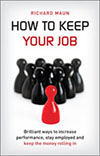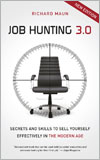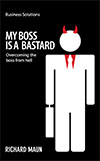better business blog
Tips and stories to add value to you and your organisation

Forecast Errors
We love the weather here in the UK. Endless hours are spent grumbling that it’s too cold, when it’s cold, and too hot when it’s hot.
If it’s dry we ask for rain, to water the plants in the garden. When it’s pouring it down we like to grumble about that and wish it was a sunny day.
People are never satisfied and yet their grumbles are generally good natured, happy ones, part of the culture and a product of being an island in the middle of at least two distinctive weather systems. They arrive and clash and give us our seasons and plenty of opportunities to discuss the weather.
Pity then the poor weather forecasters. Using the latest satellite images and complex algorithms they do their best to tell us what will happen tomorrow and next week. And we like to listen and then loudly tell everyone how they got it wrong.
Snow is forecast? Then there’s no snow and people grumble.
A sunny day? It rains. We love to grumble.
As someone who has to drive a lot for business, any day when it doesn’t snow is a good day for me. And if it rains hard and means I’m unable to mow the lawn, I count that as a win too!
At this time of year many businesses are setting budgets, which are based on sales forecasts.
The problem I’ve seen many times is that if people want to spend more, they raise the sales forecast to cover it. What they need to do is keep the sales forecast as a cautious number and then budget cautiously from that.
“A forecast is just a bad guess written down.”
I’m not sure who said this, but I like it. It’s what guides me when I’m forecasting for my own business and it keeps me in awareness that caution is the best defence against being wildly over-optimistic.
Forecasting errors tend to be down to bullish sales managers who readily agree that they will double sales this year. It’s an enticing proposition and all too easy to buy into the excitement that this year is going to be a big one!
Forecasting errors creep in when managers lose sight of what happened last year. They assume that all problems are solved and that this year there will be no staff issues, material shortages, quality problems, machine breakdowns, or cashflow delays.
Forecasting errors can sneak up on us if we ignore competitor activity, cultural shifts and the impact of new technology. Blockbuster famously ignored the potential of Netflix and along the way must have produced one of the worst sales forecasts in business history!
If your method of forecasting is to take last year’s sales and add 10% then you have a useless forecast. It’s just a bad guess written down.
We can never forecast accurately. So, we need to look at what happened over the last two years and see what the trends are, both in terms of external sales and competitor activity and in terms of our internal ability to deliver.
An example of internal silliness is this: A business I worked for many years ago would base their output on the productive time of 10 staff, completely ignoring the effect of holidays, which meant they had a net staffing figure of 9 people for the year. As a result they spent the whole year chasing their tails and whipping people hard to meet targets. Not a happy business.
Maybe the best forecast is no forecast, or at least one that avoids:
1. The vanity of over-ambitious managers.
2. The curse of unfounded optimism.
3. The stupidity of not accounting for what happened last year.
4. The danger of neat maths, such as rounding up numbers to make things look rosy.
Whatever sort of business we are in, we can all take time this week to introduce our business forecast to the shredder. Then we can sit down, switch off our ego and really think about what the year ahead could look like.
And whatever answer we end up with we can be cheery and smile and know that our forecast is going to be wrong!
If we can use a pine cone to forecast the weather, maybe we can use it for business issues too?
Now then… what’s the weather doing today? Hmmm fog. That wasn’t forecasted!
Next week: 6 Month Selling
e-publishing
Click icon for details


recent posts
browse archive
books
Click cover to view details on Amazon

How to Keep Your Job
Brilliant ways to increase performance, stay employed and keep the money rolling in
Published 2011 Marshall Cavendish
208pp

Job Hunting 3.0
Secrets and skills to sell yourself effectively in the Modern Age
Published 2010 Marshall Cavendish
260pp

 RSS
RSS


